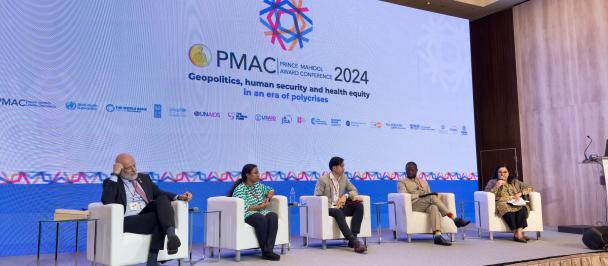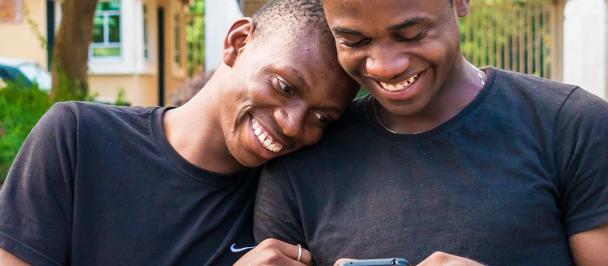By Nicholas Booth, with inputs from Prof. Katrina Scior; Martin Okiyo; Kazuyuki Uji; and Monjurul Kabir, with support from UN Women and UNDP colleagues from project countries
Prejudices and stereotypes hold many of us back from fulfilling our potential and leading lives as free and equal citizens. People with disabilities struggle to get equal access to education, healthcare, jobs and housing, because those prejudices and stereotypes lower expectations for them. Many see them as objects of pity or charity, some see their predicament as punishment for ‘bad karma’ in a previous life, or a shame to be kept out of sight.
Twenty percent of women in the world have some form of disability. Women and girls with disabilities face multiple barriers related to stigma, and discrimination, which hinders their progress. Such blatant exclusion hampers the achievement of the Leave No One Behind (LNOB) agenda, a cornerstone of Agenda 2030. This is very much at the heart of UN Secretary General’s report on Our Common Agenda (also UNGA Resolution on this adopted on 17th November 2021).
In comparison to men with disabilities, women with disabilities are three times more likely to be illiterate and to have unmet healthcare needs; twice less likely to be employed and know how to use the Internet; and more likely to face hunger. They are also at great risk of gender based and sexual violence.
They encounter intersecting and multiple forms of discrimination arising from gender and disability, to age, economic status, religion, indigenous identity, and race, among others. These conditions further catalyze their exclusion.[1]
A study in Cambodia found that women with disabilities were four times more likely to experience controlling behaviour from their partners than women without disabilities, and that they were at much higher risk of sexual, physical, and emotional violence. Few dared speak out, and fewer were able to access any kind of support. Since that study was conducted, COVID-19 has made the epidemic of violence against women worse – and it has hit women with disabilities harder.
The impact of stigma and discrimination on people with disabilities – especially women – has long been recognized. Yet, we still lack good data, partly because we have not yet developed robust and internationally-recognised tools to understand disability stigma experienced in different areas of life, opportunities, and its impact on wellbeing. And our response too often stops at awareness-raising, rather than approaches that have shown a positive impact in changing the underlying determinants that drive and perpetuate stigma and discrimination.
UNDP and UN Women are setting out to take on this challenge with our new project ‘Addressing Stigma and Discrimination against Women with Disabilities’ (ASDWD). With the support of the UN Partnership on the Rights of Persons with Disabilities and UNDP’s Global Programme on Strengthening the Rule of Law and Human Rights for Sustaining Peace and Fostering Development, and UN-Women’s Global portfolio on Disability Inclusion and Intersectionality, we will develop tools to capture the stigmatizing experience and its impact on women with disabilities.
We will pilot this project, in Moldova, Pakistan, Palestine and Samoa, and pilot approaches to changing attitudes and behaviour, as key steps towards creating an inclusive society. The project will do this in close partnership with women with disabilities. It will also focus on violence perpetrated against women and girls with disabilities, with research on disability-related stigma supported by a team of experts, from the UK.
Equipped with robust evidence and proven approaches, we will join with persons with disabilities, organisations that support their rights, and women CSOs, to advocate for changes in laws, policies, and services. The aim is to nurture an enabling social environment where persons with disabilities can live their lives with dignity, and free from violence. Our project will reflect the theme of the 2021 International Day of Persons with Disabilities, on 3rd December: “Leadership and participation of persons with disabilities toward an inclusive, accessible and sustainable post-COVID-19 world.”
According to STEP, one of Pakistan’s leading NGOs working on the disabilities agenda, ‘over half of the world’s population are women, and 1 in 5 has a disability. Yet, women and girls with disabilities are often invisible in national laws and policies concerning women and persons with disabilities.
In Pakistan, the lack of data on stigma and discrimination against people with disabilities hampers the development of adequate legislations, policies, and programmes at all levels of governance. The joint project between the Ministry of Human Rights, STEP, UN Women and UNDP will address this shortcoming.
The project’s initial results are expected by the end of 2022. As we develop new tools and approaches, we will also look to form new partnerships to build on our progress. Because protecting and advancing the rights and wellbeing of women and girls with disabilities will move us closer and faster to inclusive, accessible and sustainable societies.
[1] UN Systems Chief Executives Board for Coordination. (2017).Leaving non one behind: Equality and non-discrimination at the heart of sustainable development. Accessed at https://unsceb.org/sites/default/files/imported_files/CEB%20equality%20framework-A4-web-rev3.pdf

 Locations
Locations



